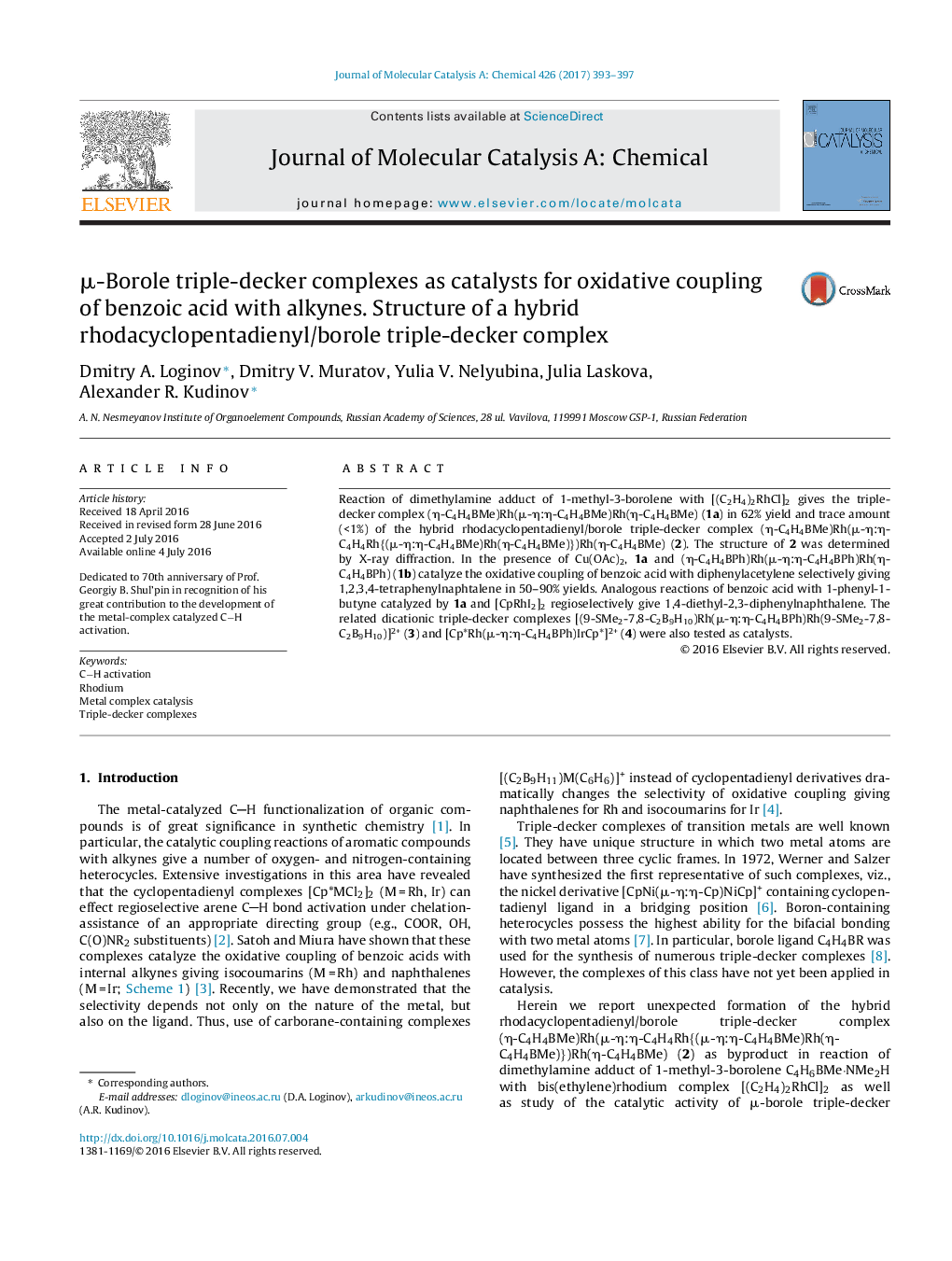| Article ID | Journal | Published Year | Pages | File Type |
|---|---|---|---|---|
| 6456431 | Journal of Molecular Catalysis A: Chemical | 2017 | 5 Pages |
•Triple-decker complex with a bridging rhodacyclopentadienyl ligand was described.•Triple-decker complexes effectively catalyze coupling of benzoic acid with alkynes.•Catalytic selectivity is determined by terminal ligands in triple-decker structure.
Reaction of dimethylamine adduct of 1-methyl-3-borolene with [(C2H4)2RhCl]2 gives the triple-decker complex (η-C4H4BMe)Rh(μ-η:η-C4H4BMe)Rh(η-C4H4BMe) (1a) in 62% yield and trace amount (<1%) of the hybrid rhodacyclopentadienyl/borole triple-decker complex (η-C4H4BMe)Rh(μ-η:η-C4H4Rh{(μ-η:η-C4H4BMe)Rh(η-C4H4BMe)})Rh(η-C4H4BMe) (2). The structure of 2 was determined by X-ray diffraction. In the presence of Cu(OAc)2, 1a and (η-C4H4BPh)Rh(μ-η:η-C4H4BPh)Rh(η-C4H4BPh) (1b) catalyze the oxidative coupling of benzoic acid with diphenylacetylene selectively giving 1,2,3,4-tetraphenylnaphtalene in 50–90% yields. Analogous reactions of benzoic acid with 1-phenyl-1-butyne catalyzed by 1a and [CpRhI2]2 regioselectively give 1,4-diethyl-2,3-diphenylnaphthalene. The related dicationic triple-decker complexes [(9-SMe2-7,8-C2B9H10)Rh(μ-η:η-C4H4BPh)Rh(9-SMe2-7,8-C2B9H10)]2+ (3) and [Cp*Rh(μ-η:η-C4H4BPh)IrCp*]2+ (4) were also tested as catalysts.
Graphical abstractFigure optionsDownload full-size imageDownload high-quality image (61 K)Download as PowerPoint slide
